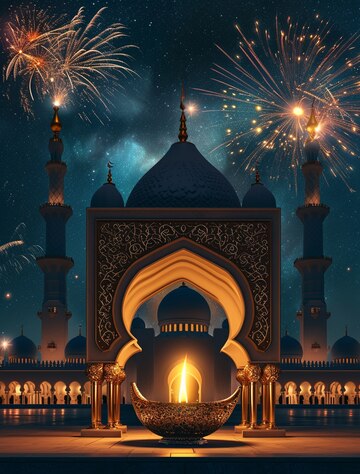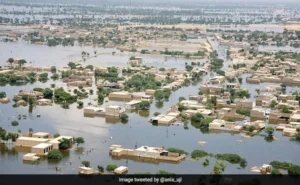

Islamic Festivals
Festivals are the special events or any occasions in every religion that they celebrate according to their reticule. In Islam, there are many festivals and these are celebrated according to the Islamic calendar. The Muslim community celebrates the Islamic festivals these festivals with full zeal and zest.
Eid UL-Fitr and Eid UL-Adha are the two most popular Islamic festivals in Islam and others in the following.
Ramadan
Muslims around the world mark Ramadan, which is the ninth month in the Islamic calendar, as a time for fasting, prayer, and introspection. Muslims fast from sunrise to sunset on this month, depriving themselves of food, liquids, and other necessities of life. Iftar, a meal served at dusk, breaks the fast.
Muslims around the world mark Ramadan, which is the ninth month in the Islamic calendar, as a time for fasting, prayer, and introspection. Muslims fast from sunrise to sunset on this month, depriving themselves of food, liquids, and other necessities of life. Iftar, a meal served at dusk, breaks the fast.
Laila Tul Qadr:
The first and last verses of the Quran are thought to have been revealed to the Prophet Muhammad on the night of Laylat al-Qadr. It is thought to take place during the final ten nights of Ramadan and is one of the holiest nights in the Islamic calendar.
Eid ul Fitr
At the end of Ramadan, Eid al-Fitr is observed to commemorate the end of the month-long fast. Transitioning to its significance, Muslims celebrate and rejoice throughout this time, attending special prayers and spending time with friends and family. Moreover, Eid al-Fitr serves as a time to express gratitude for life’s blessings and to contribute to charitable causes.
Hajj
One of the five pillars of Islam is the Hajj, a mandatory religious obligation for Muslims who can afford and physically go to Mecca. Transitioning to its significance, with millions of Muslims visiting Mecca annually, it stands as the biggest pilgrimage in the world. During the Hajj, a series of rituals are performed, including walking around the Kaaba, a cube-shaped structure located in the middle of the Great Mosque of Mecca.
Eid ul Adha
Following the conclusion of the Hajj, Eid ul-Adha honors the Prophet Ibrahim’s readiness to offer his son as a sacrifice in submission to God. Transitioning to the customs associated with this festival, every Muslim in the globe offers an animal as a sign of their readiness to submit to God’s will; often, this is a sheep, cow, or goat. After the sacrifice, three halves of the meat are distributed, one to those in need and one to those living in poverty.
Muharram
Ashura is a Shia Muslim holiday honoring the Prophet Muhammad’s grandson Hussein’s martyrdom at the Battle of Karbala. The Islamic calendar’s first month, Muharram, has its celebration on its tenth day.
Eid e Milad-un-Nabi
Muslims around the world commemorate the birth of the Prophet Muhammad on Milad un-Nabi. Transitioning to the Islamic calendar, the third month, Rabi al-Awwal, has its 12th day set aside for its observance.
Shab-e-Meraj
The Islamic festival of “shab e-Meraj” commemorates the Prophet Muhammad’s ascent and night journey. Transitioning to its timing, in the Islamic calendar, it is observed on the 27th day of Rajab, the seventh month.
Lailatul Barat
Lailatul Barat is a night of forgiveness observed by Muslims on the 15th night of Shaban, the eighth month of the Islamic calendar. Transitioning to its significance, it is a time of prayer and reflection, with Muslims seeking forgiveness for their sins. This night is celebrated by Muslims worldwide.
Conclusion
not confined to the festivities listed above. Transitioning to diversity, though thIslam has several holidays, ceremonies, and traditions. Muslims are ey are the main festivals celebrated by Muslims around the world based on culture and location, Muslims in different parts of the world celebrate different festivals unique to their country or religion. However, one thing is similar to all of these Islamic holidays. Transitioning to their commonality, they are all focused on personal development and kindness. Muslims exchange gifts with their family, friends, and loved ones. Additionally, they will feed the needy and orphans, ensuring that everyone shares in their delight.
Islam includes many notable festivals and rituals that are culturally and religiously significant to Muslims around the world.
There are a number of festivals in Islam but the highlight festivals are mentioned above.
Every festival in Islam is celebrated at a specific time and each festival has specific importance.
Popular News


The Story of Black Friday 2024










